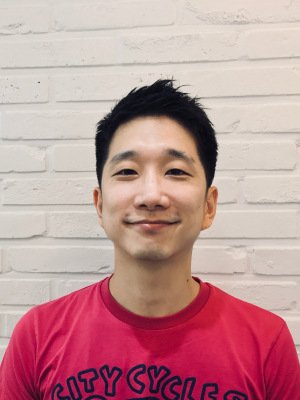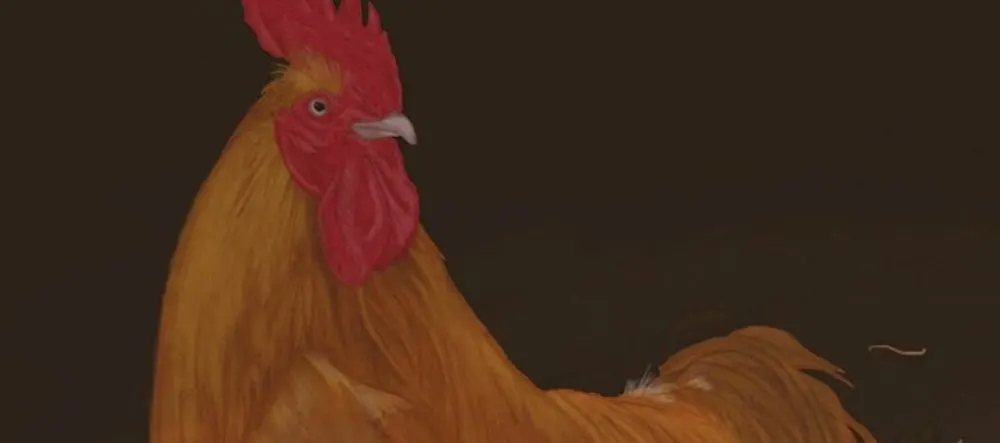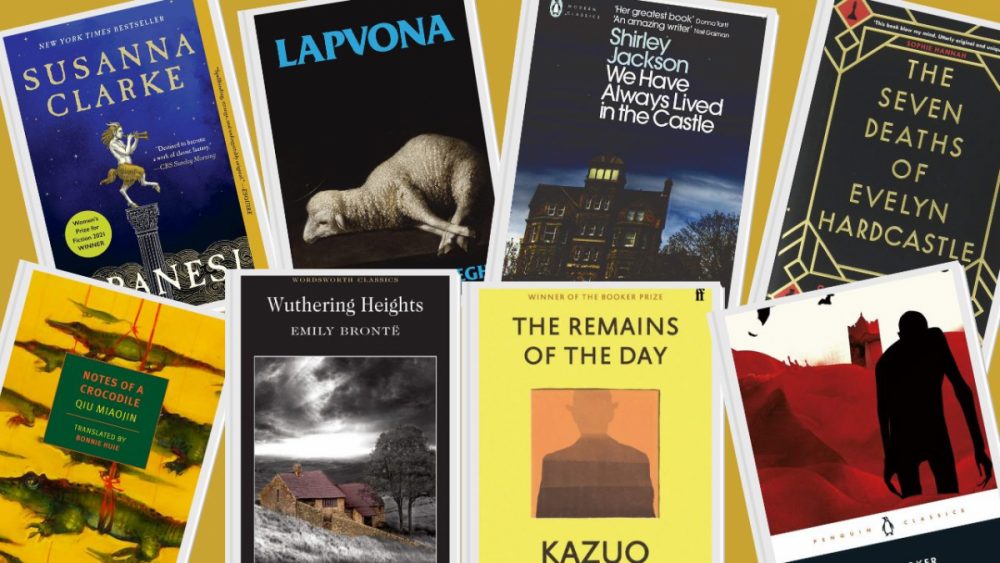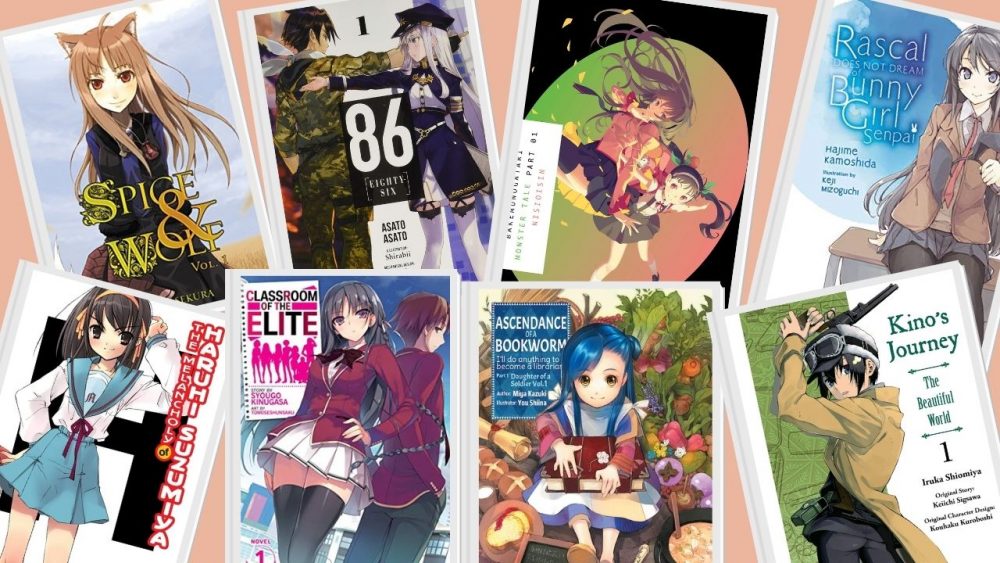One of the most important and celebrated works of literature to come out of Korea in 2018 was Kyung-sook Shin’s The Court Dancer, a powerful work of historical literature based on a true story. And without the deft translation skills of Anton Hur, it would never have reached the English-speaking world.
Following the book’s success, Hur has also recently translated the complete short stories of Kang Kyeong-ae (The Underground Village), a vital voice in Korean literature, for the folks over at Honford Star. To borrow his own words, Anton is a writer and translator working in Seoul.
“I was born in Stockholm, Sweden, and was raised in British Hong Kong, Ethiopia, and Thailand, but mostly in Korea, where I’ve lived for almost thirty years. I was awarded the title of Person of Distinguished Service to the Nation while serving in the Korean Army.”
We had the privilege to ask him a few questions about his life and work as a Korean to English literary translator.

What inspired you to pursue a career in translation?
Well, I’ve always really liked clothes and reading Vogue and—oh wait a minute, you said translation, not fashion. Also, I don’t have a career in fashion. Why did I think fashion? Unlike with fashion, I think that for a lot of people with my background, translation is a career you kind of fall into.
You grew up doing it all the time for your parents or whatever and at some point people start paying you for it and you have a brother who works at Korea’s largest conglomerate and he’s like, “You don’t want to work for a Korean corporation” and so you decide to build up your client list and the next thing you know, you have twenty years behind you and you’re buying every colour of a Uniqlo cashmere sweater in your size because you can. (Wait, are those sweaters why I thought fashion?)
Getting into literary translation was a lot more difficult because it’s a bit of a cartel, and I actually was on the fence about doing it until my mentor, Sora Kim-Russell, persuaded me to submit my translations I did for a workshop I took under her.
I don’t think I was really serious about it at first, I had a bad experience with an LTI Korea translation grant previously and I was just doing the workshop to prepare myself for a writing career because it seemed like the best way to learn how to write better, the most obvious path of going overseas for an MFA seeming like overkill—me being a Korean national living in Seoul and all. Now there are quite a few Koreans with MFAs but back then nobody here really knew what one was.
Then I got really inspired by the writers that I translate, namely Jeon Sam-hye, Kyung-Sook Shin, Jung Young Su, Sang Young Park, Bora Chung, Kang Kyeong-ae, and Kim Un.
Their awesome work is the reason I translate.
What are the best and worst parts of your job?
This is going to sound odd, but the best part is when I get the right to translate something that’s going to be published. I know this sounds oh-so-non-artiste of me but it’s a big deal getting published. When I watched Mad Men I totally understood every time Peggy celebrated the tiniest of wins, whether it was the right to write a tag line, be at a presentation, or present a campaign.
Just like any other profession, literary translation has these big and small milestones, and just like in Mad Men, it’s getting that business that’s the biggest milestone. To paraphrase Peggy, keeping the business is easy, it’s getting that business that’s hard.
The worst part of literary translation is this horribly entrenched culture of unpaid labour. Not only do most of us create samples on spec, we have to come up with book proposals that include a lot of copywriting skills, which not everyone has, and research the market to see who would be interested in your manuscript.
You can get paid for this work but it’s mostly done for free. In Korean translation, this free-labour phase is compounded by a general discounting of the translator by the rightsholders, who tend to be Korean publishers and not the authors, and these Korean publishers don’t take rights inquiries seriously and come up with ridiculous conditions for translators.
I can send in an inquiry and get an answer two months later, after three follow-up emails or something, and they’ll be like, “You can submit your translation only for one magazine and if you get rejected, you have to discard your translation” and other conditions that clearly show these rights holders have no idea how a translation is marketed in the West.
Then I have to educate them, which is several more emails that take all morning to write, mornings where I don’t get to write or translate, and throughout this whole process I’m like: Why am I begging them to do work for them that they 1) aren’t doing themselves anyway and 2) I’m not charging them for?
Nobody helps us in this process. Not LTI Korea, or not really. It’s overwhelming and infuriating and many translators have quit literary translation because of this opaque and demoralizing aspect of the industry.
What advice would you give someone who wants to become a translator?
Be extroverted. There’s a bit of controversy about this issue on Korean freelancer Twitter, whether it’s better for freelancers to be introverted or extroverted, but I fall into the extroverted camp.
Getting clients, appealing your case, pushing yourself out of your comfort zone to reach the next milestone is a lot easier if you’re the kind of person who drapes yourself with a feather boa and comes down on a swing from the ceiling singing, “Come and get me boys!”
I’m already a perfect bilingual, I was a full-scholarship student at the Korea University College of Law, I have an MA in Victorian poetry, and I’m pretty well-read in both Korean and English because I’ve wanted to be a novelist since I was seven and I believe in being prepared, but I think the thing that helped me the most as a translator was my ability to put myself out there and see everything as an opportunity and try to give people the impression that I’m easy to talk to and work with.
There are people far less bilingual than I am with fewer years on the clock who have better translation careers than I do because they’re just awesome people to work with.
Not that introverts can’t be awesome to work with but we’re already a very introvert-y profession and at least in Korea there’s this weird expectation that just because you have the ability and fancy degrees, someone will automatically drop work on your lap. That doesn’t happen. You have to go out and get the work yourself.
What do you wish people knew about translation?
That Korean literary translators are so tired of talking about “mistranslations” in The Vegetarian with you? Also that if you really want to talk about it with me, actually read it first?
You’d be surprised by how many men—every single one of them have been men, oddly enough—who want to give me their opinions on The Vegetarian translation without ever having read it. Also, I’m not really interested in their opinion of it.
Are you particularly selective about what you translate? How do you choose which books to undertake?
My answer to this question is becoming notorious but I’m sticking with it. I translate the work that I “hear” the English for. Often I’ll read a Korean work and I’ll enjoy it but feel no compulsion to translate it.
There’s a queer bestseller that came out this year that I was keen on but it “sounded” more Japanese than English to me. Which is fine, it found another translator, but I was a bit disappointed for myself. It only takes a paragraph or two for me to get the feeling.
I was at a book fair reading different books at Arzak Books’ stall, just picking one up after another and reading half a page of each, and this woman working there kept cheerfully interrupting me telling me about each book I was picking up.
Then I came across this great book titled Cursed Bunny and the sentences sang off the page. The author turned out to be the woman hawking the books! That’s how I met Bora Chung.
I asked for sample rights on the spot. It was a great pitch. Jeon Sam-hye happened to be working at the Arzak stall, too, so I dragged her over and was like, “Tell her, Author Jeon! Tell her how fabulous I am!” “Um, Anton is fabulous. (May I go now?)”
What are you excited about or working on at the moment?
All of my writers are so fabulous, oh God, which one is the most exciting project? I’m debuting Sang Young Park in English in Words Without Borders soon, he’s a writer with an incredibly honest sensibility, I can’t wait for everyone to read him.
I just finished a sample of Bora Chung’s Cursed Bunny and it turned out so amazing in English, so Carmen Maria Machado and super-weird, so that’s going to get sent out soon.
I’m doing a little bit with each author right now and things have kind of got tied up with paperwork, the kind I was talking about above, but there is so much material ready to go. But right this minute I’m working on my own novel until the end of November, as my agent is expecting a marketable manuscript by December. So that’s exciting and I’m looking forward to seeing if something comes of it.
Has the perception of Korean books in translation in both the book trade and the media changed during the time you have worked as a translator?
Absolutely! We’ve had so many people working for this moment, from authors and translators and LTI Korea and the Daesan Foundation to even Yuna Kim and BTS who make Korea look cool.
I think Han Kang and Deborah Smith winning the Man Booker International in 2016 was the watershed moment for Korean literature in translation.
There have been great works before then, of course, and even a New York Times bestseller, but the Booker was the Ricky-Martin-sings-at-the-1999-Grammys moment. It was our “Copa de la Vida.” Which means Han Kang was Ricky Martin?
It’s great to see Korean literature readers in the Anglophone world, the works being appreciated the same way they’re appreciated here.
What other translators (of Korean or otherwise) have inspired you, or whose works do you recommend people read?
I really admire the Thai literary translator Mui Poopoksakul. I admire not only the precision and grace of her Prabda Yoon translations published by Tilted Axis Press but also for her almost single-handedly introducing an entire nation’s literature into English. Can you imagine having that on your shoulders?
I wouldn’t be surprised if the Thai royal family gave her a medal someday. In the meantime, as far as I can see, she’s received very little support for her work considering the immense impact that she’s had, although I think she’s received some funding from English PEN.
I really hope she gets all the grants and residencies and prizes so more readers can read the great Thai work that she’s translating. She’s basically a translator I have on automatic preorder.

So many fantastic translators have influenced me, but I will always, always, always shoutout to Sora Kim-Russell, who at this point is the RuPaul of Korean literature in translation, if I may use one more analogy. My booktuber friend Matthew Sciarappa always says if Sora Kim-Russell translates it, he will read it, and that’s a really excellent heuristic.
But she’s also like RuPaul in that not only is she the best at what she does, she’s great at helping other translators come into their own. Not every good translator is a good teacher, believe me, said Anton as he thought of his own disasters in his teaching.
Thank you Anton! You can follow him on Twitter or visit his website to find out more.



